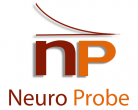The chemokine regulated on activation, normal T cells expressed and secreted (RANTES), is a C-C chemokine and a potent chemoattractant for monocytes, T lymphocytes, basophils, and eosinophils. Its expression by human airway epithelium has been demonstrated both in vitro and in vivo. We investigated whether RANTES is expressed by normal human airway epithelial cells after influenza viral infection and examined its bioactivity. Epithelial cells were obtained from bronchial tissue or nasal polyps of patients who had undergone lobectomy for lung cancer or polypectomy for nasal polyps. These cells were cultured by the outgrowth method. Cultured cells were infected with influenza virus A (subtype H3N2) after which the supernatants and the cells were collected 8 to 72 h after infection. RANTES mRNA (messenger RNA) was analyzed by the reverse transcriptase-polymerase chain reaction and Southern blot analysis of its product. Concentrations of RANTES in the supernatants were analyzed by enzyme-linked immunosorbent assay. RANTES protein and mRNA were not detected in the media of uninfected cells. PCR products for RANTES were clearly detected in nasal and bronchial epithelial cells 24 h after infection. Southern blot analysis confirmed that the PCR products were indeed specific for RANTES mRNA. Twenty-four to 72 h after infection, significant levels of RANTES protein were detected in culture media. We also investigated the chemotactic activity of the supernatant of cultured cells. The supernatant of the cells 48 h after infection had potent chemotactic activity for eosinophils, which was attenuated by the addition of anti-RANTES antibodies. These findings suggest that influenza virus infection may induce expression of bioactive RANTES by normal human bronchial and nasal epithelial cells.
http://ajrcmb.atsjournals.org/content/18/2/255.long
